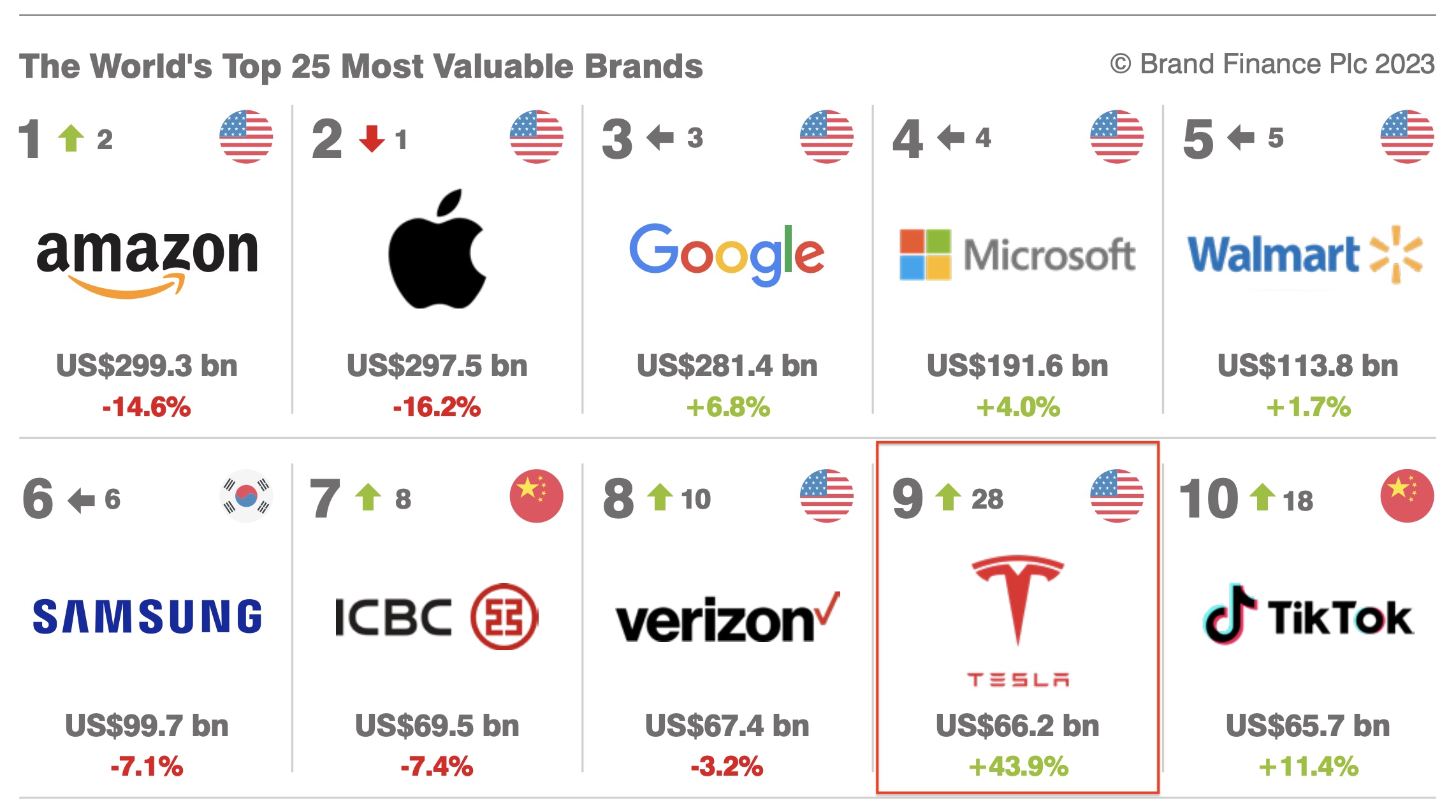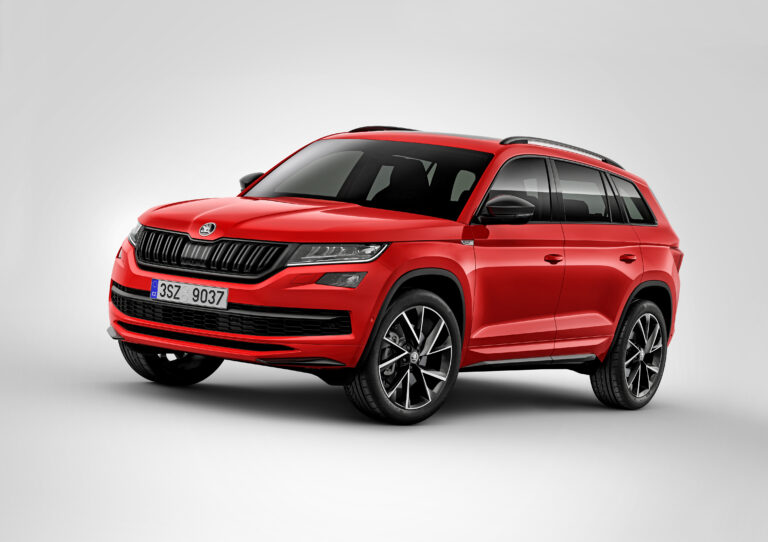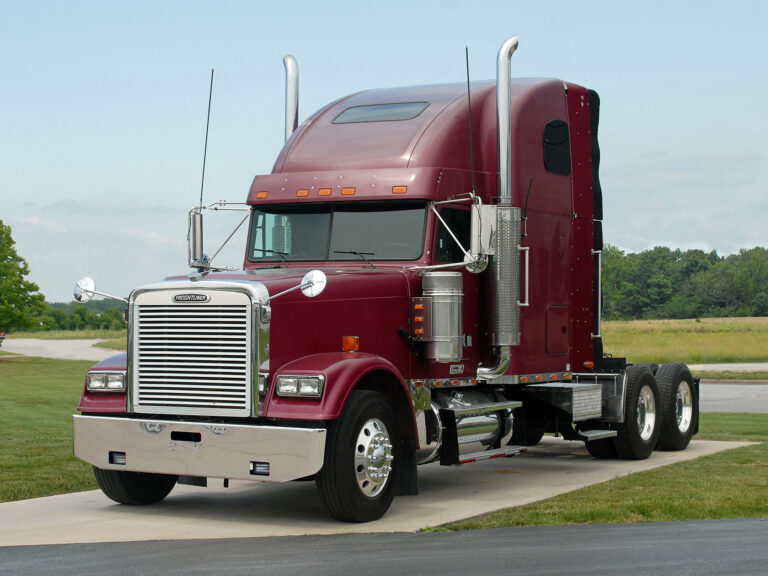Current Car Brands: A Comprehensive Guide to the Global Automotive Landscape
Current Car Brands: A Comprehensive Guide to the Global Automotive Landscape cars.truckstrend.com
The automotive industry is a vast, dynamic, and ever-evolving ecosystem. At its heart lie the car brands – names that evoke images of speed, luxury, reliability, or innovation. Understanding the intricate tapestry of current car brands is more than just knowing who makes what; it’s about grasping the forces that shape consumer choices, drive technological advancements, and influence the global economy. From century-old stalwarts to nimble electric vehicle startups, the landscape of car brands is a fascinating reflection of human ingenuity and market demands.
This comprehensive guide delves into the world of current car brands, exploring their diversity, the values they embody, and the trends that are reshaping their future. Whether you’re a prospective car buyer, an industry enthusiast, or simply curious about the automotive world, this article will provide you with a detailed overview of the key players and dynamics at play.
Current Car Brands: A Comprehensive Guide to the Global Automotive Landscape
The Global Automotive Landscape: A Snapshot of Diversity
The automotive world is characterized by an astonishing array of brands, each vying for a share of the global market. While some brands operate independently, many are part of larger automotive groups, which allows for shared platforms, technologies, and economies of scale. For instance, the Volkswagen Group encompasses brands as diverse as Audi, Porsche, Lamborghini, and Skoda, demonstrating a strategic approach to cover various market segments. Similarly, Stellantis brings together iconic names like Jeep, Ram, Dodge, Fiat, Peugeot, and Citroën.
This landscape can broadly be categorized by their primary market focus and positioning:
- Mass Market Brands: These are the workhorses of the industry, focusing on affordability, reliability, practicality, and broad appeal. Examples include Toyota, Honda, Ford, Hyundai, Kia, Volkswagen, and Nissan. They offer a wide range of vehicles, from compact sedans to family SUVs and pickup trucks, catering to everyday transportation needs.
- Premium/Near-Luxury Brands: Occupying the space between mass-market and full luxury, these brands often emphasize enhanced design, superior driving dynamics, advanced safety features, and higher-quality materials without reaching ultra-luxury price points. Subaru, Mazda, Volvo, and Volkswagen (in some segments) often fit this description, as does Genesis, Hyundai’s luxury spin-off.
- Luxury Brands: Synonymous with prestige, performance, comfort, and cutting-edge technology, these brands target affluent consumers. Mercedes-Benz, BMW, Audi, Lexus, Cadillac, and Acura are prime examples, offering refined interiors, powerful engines, and a sophisticated driving experience.
- Performance/Sports Car Brands: Dedicated to exhilarating driving experiences, these brands prioritize speed, handling, and engineering prowess. Porsche, Ferrari, Lamborghini, McLaren, and Aston Martin are iconic names in this category, often leveraging motorsport heritage.
- Electric Vehicle (EV) Focused Brands: A rapidly growing segment, these brands are either pure-play EV manufacturers or established brands that have heavily invested in electric-only lineups. Tesla, Rivian, Lucid, and Polestar are prominent examples, challenging traditional automakers with their innovative battery technology, software integration, and direct-to-consumer sales models.
- Niche/Specialty Brands: These brands often focus on a very specific segment or type of vehicle. Jeep, for instance, is synonymous with off-road capability, while Land Rover excels in premium SUVs with rugged credentials. Rolls-Royce and Bentley represent the pinnacle of ultra-luxury, bespoke craftsmanship.
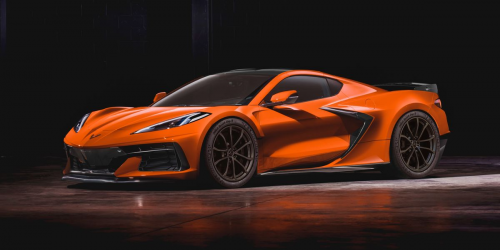
Understanding these categories helps in navigating the vast choices available and appreciating the distinct identity each brand cultivates.
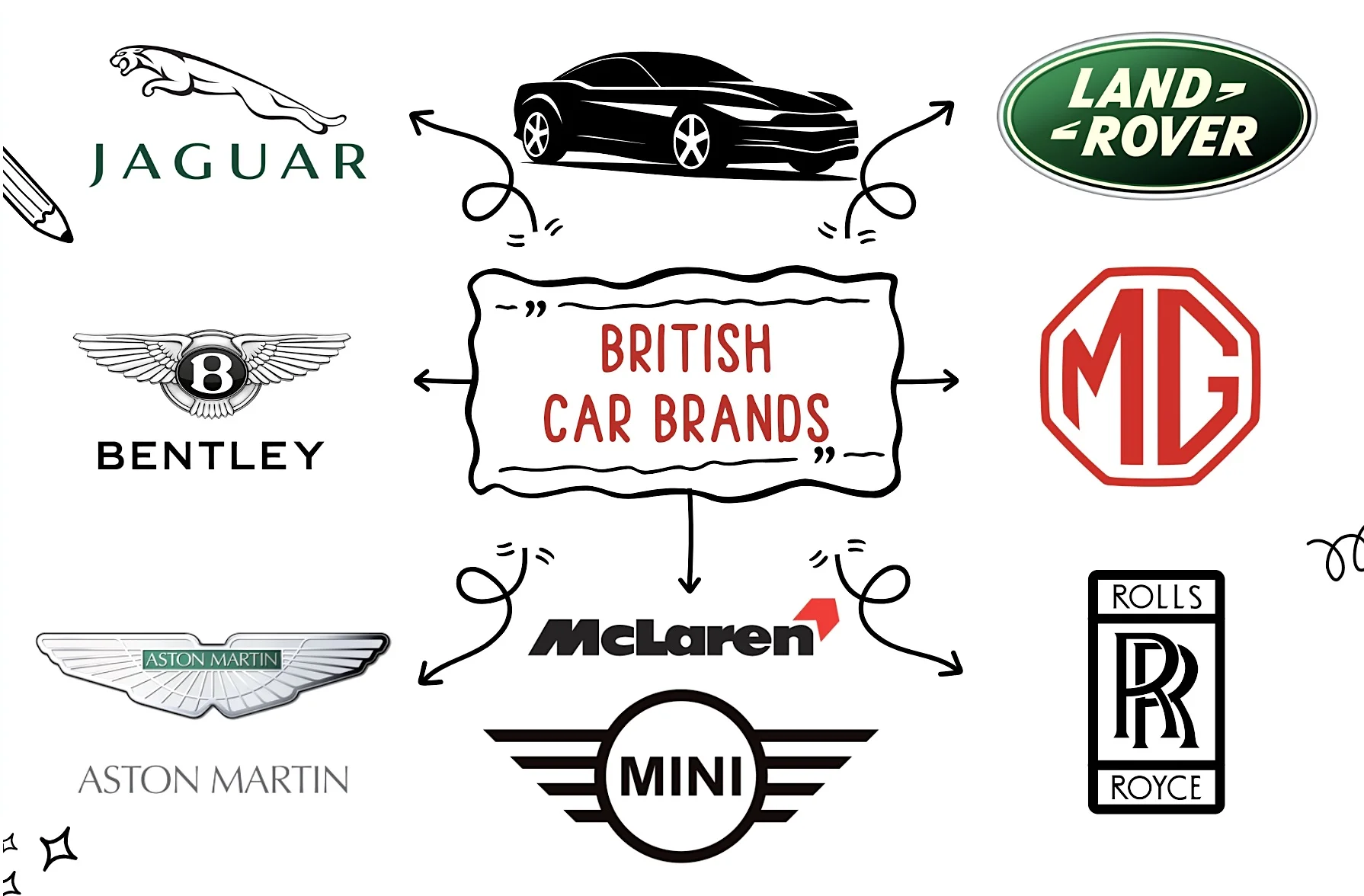
Decoding Brand Identity: What Defines a Car Brand?
A car brand is far more than just a nameplate; it’s a complex identity shaped by heritage, design philosophy, technological focus, and market positioning. For consumers, this identity translates into perceived value, trust, and even a sense of belonging.
Key Information that Defines a Brand:
- Heritage and Legacy: Many brands boast rich histories spanning decades or even a century, influencing their current design language and engineering principles. Think of Mercedes-Benz’s pioneering spirit or Ford’s legacy of mass production.
- Target Audience: Each brand tailors its vehicles and marketing to a specific demographic. A Kia might target value-conscious families, while a BMW appeals to those seeking driving dynamics and status.
- Design Philosophy: Brands often have a distinctive aesthetic. Volvo is known for its understated elegance and safety-first design, while Lamborghini is instantly recognizable for its aggressive, angular lines.
- Technological Focus: Brands differentiate themselves through their emphasis on specific technologies. Toyota is renowned for its hybrid systems, Tesla for its battery tech and software, and Mercedes-Benz for its luxurious infotainment and safety features.
- Brand Values: These are the core principles a brand stands for – be it reliability (Toyota), safety (Volvo), innovation (Tesla), performance (Porsche), or rugged capability (Jeep).
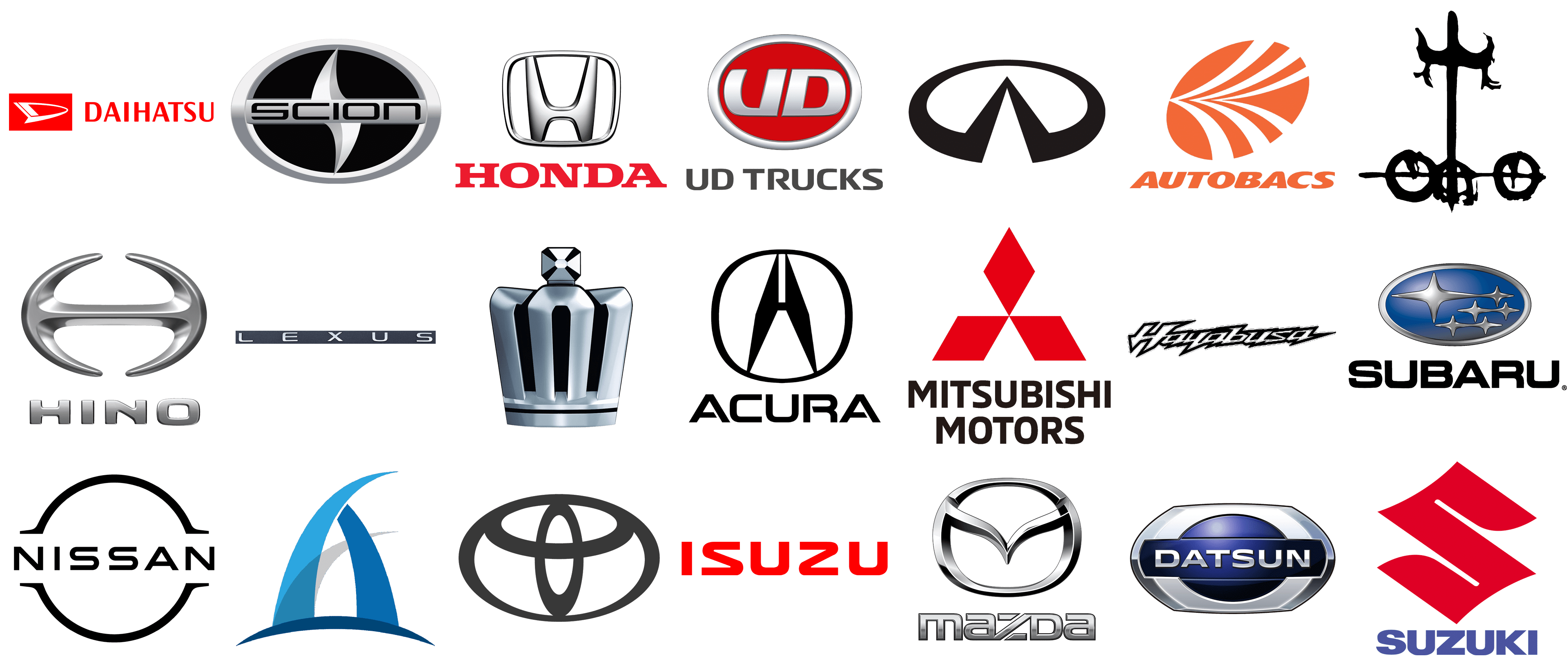
Benefits for Consumers:
Understanding brand identity offers several benefits for consumers:
- Informed Decision-Making: A strong brand reputation for reliability or safety can simplify the buying process.
- Predictable Quality and Service: Brands often maintain consistent standards across their models and dealership networks.
- Resale Value: Brands with strong reputations and demand tend to hold their value better over time.
- Community and Experience: Many brands foster a sense of community among owners, offering events, clubs, and unique experiences.
Important Considerations When Evaluating a Brand:
When considering a car, it’s crucial to look beyond the individual model and evaluate the brand itself:
- Reliability Ratings: Consult independent surveys (e.g., J.D. Power, Consumer Reports) for long-term reliability and owner satisfaction.
- Safety Records: Check crash test ratings from organizations like the NHTSA (USA) or Euro NCAP (Europe).
- After-Sales Service and Dealer Network: A widespread and reputable dealer network ensures easier maintenance and repairs.
- Brand’s Future Direction: Is the brand investing in technologies relevant to your future needs (e.g., EVs, autonomous driving)?
- Environmental and Social Responsibility: For many, a brand’s commitment to sustainability and ethical practices is increasingly important.
The Evolution of Car Brands: Trends and Challenges
The automotive industry is in a period of unprecedented transformation, driven by technological advancements, environmental concerns, and shifting consumer preferences. These trends present both immense opportunities and significant challenges for current car brands.
Key Trends Shaping the Industry:
- Electrification: The most dominant trend is the rapid shift towards electric vehicles (EVs). Brands are investing billions in developing new EV platforms, battery technologies, and charging infrastructure. This is leading to a proliferation of new electric models across all segments.
- Autonomy: The pursuit of self-driving technology continues, with brands developing advanced driver-assistance systems (ADAS) as stepping stones towards fully autonomous vehicles. This requires massive investment in AI, sensors, and software.
- Connectivity and Software: Cars are becoming increasingly connected, offering over-the-air (OTA) updates, advanced infotainment systems, and integration with smart devices. Software is becoming a key differentiator, turning vehicles into "computers on wheels."
- Sustainability: Beyond just tailpipe emissions, brands are focusing on the entire lifecycle of a vehicle – from sustainable materials and production processes to recycling and energy efficiency.
- New Mobility Solutions: The rise of ride-sharing, car subscriptions, and micro-mobility solutions is challenging traditional car ownership models, prompting brands to explore new revenue streams.
- Consolidation vs. New Entrants: While major mergers (like FCA and PSA forming Stellantis) continue to consolidate power, the lower barrier to entry for EV startups is creating a wave of new brands, especially from China.
- Direct-to-Consumer Sales: Brands like Tesla have popularized direct sales models, challenging the traditional dealership network and pushing legacy brands to adapt their retail strategies.
Challenges Facing Car Brands:
- Supply Chain Disruptions: Global events, such as the semiconductor shortage and geopolitical tensions, have severely impacted production and delivery timelines.
- Intense Competition: The EV market, in particular, is highly competitive, with established players battling agile startups for market share.
- Regulatory Pressures: Stricter emissions standards and safety regulations worldwide demand continuous innovation and investment.
- Adapting Legacy Infrastructure: Traditional automakers face the complex task of transitioning from internal combustion engine (ICE) production to EV manufacturing without disrupting existing operations or alienating current customers.
- Talent Acquisition: The shift towards software-defined vehicles and electrification requires new skill sets, leading to a fierce competition for engineering and software talent.
- Profitability of EVs: While EV sales are growing, achieving profitability comparable to ICE vehicles remains a challenge for many brands, especially given the high R&D and battery costs.
Practical Advice for Consumers: Choosing the Right Brand
Navigating the vast landscape of car brands can be daunting. Here’s some practical advice to help you make an informed decision that aligns with your needs and preferences:
- Define Your Needs and Budget: Before looking at any brand, clarify what you need from a vehicle. What’s your budget (purchase and running costs)? What size and type of vehicle do you need (sedan, SUV, truck, EV)? What are your must-have features (safety, tech, performance)?
- Research Brand Reputation: Don’t just rely on marketing. Look up independent reliability surveys (e.g., J.D. Power, Consumer Reports) for brands and specific models. Research safety ratings from organizations like the IIHS (USA) or Euro NCAP.
- Consider After-Sales Service and Dealer Network: A car purchase is a long-term commitment. Research the reputation of local dealerships for a given brand. Are they known for good customer service, efficient repairs, and fair pricing? A widespread network is beneficial, especially for longer trips.
- Test Drive Multiple Brands and Models: The best way to understand a brand’s driving dynamics, comfort, and features is to experience them firsthand. Don’t limit yourself to one brand; test drive comparable models from several manufacturers. Pay attention to steering feel, ride comfort, cabin noise, and user-friendliness of infotainment systems.
- Look at Future Trends: If you plan to keep the car for many years, consider how the brand is adapting to future trends. Is it committed to electrification? Does it offer over-the-air updates for its vehicles? These aspects can impact the car’s longevity and resale value.
- Read Reviews, But Form Your Own Opinion: Consult professional automotive reviews from reputable sources, but also read owner forums and reviews. Remember that personal experiences can vary, so use them as a guide, not a definitive judgment.
- Don’t Just Buy a Car, Buy Into an Experience: Some brands offer more than just transportation; they offer a lifestyle or a community. If this appeals to you, consider how a brand’s values align with your own.
Table: Overview of Current Car Brands by Market Segment
This table provides a representative look at various car brands, categorized by their primary market segment, along with their general focus and parent company where applicable. Please note that specific model pricing within each brand varies widely.
| Category | Example Brands (Selection) | Primary Market Position/Focus | Parent Company/Group (if applicable) | Noted Characteristic/Advantage |
|---|---|---|---|---|
| Mass Market | Toyota, Honda, Ford, Hyundai, Kia, Nissan, Chevrolet | High volume, affordability, reliability, broad appeal | Toyota, Honda, Ford, Hyundai, Kia, Renault-Nissan-Mitsubishi, GM | Durability, Fuel Efficiency, Practicality |
| Premium/Near-Luxury | Subaru, Mazda, Volkswagen, Volvo, Genesis, Buick | Elevated design, safety, driving dynamics, quality | Subaru, Mazda, VW Group, Geely, Hyundai, GM | Driver Engagement, Safety Innovation, Design |
| Luxury | Mercedes-Benz, BMW, Audi, Lexus, Cadillac, Acura | Performance, comfort, advanced tech, prestige | Mercedes-Benz Group, BMW Group, VW Group, Toyota, GM, Honda | Refined Interiors, Cutting-Edge Tech, Status |
| Ultra-Luxury | Rolls-Royce, Bentley, Bugatti | Exclusivity, bespoke craftsmanship, ultimate comfort/performance | BMW Group, VW Group, VW Group | Hand-built Quality, Unparalleled Exclusivity |
| Performance/Sports | Porsche, Ferrari, Lamborghini, McLaren, Aston Martin | High-performance, driving thrills, motorsport heritage | VW Group, Ferrari N.V., VW Group, McLaren Group, Lawrence Stroll | Speed, Handling, Engineering Prowess |
| EV-Focused Innovators | Tesla, Rivian, Lucid, Polestar, Nio, Xpeng | Pioneering EVs, software-driven, sustainability | Independent, Amazon-backed, Independent, Geely/Volvo, Independent, Independent | Long Range, Rapid Charging, Software Updates |
| Off-Road/Utility | Jeep, Land Rover, Ram, GMC | Rugged capability, adventure, specialized utility | Stellantis, Tata Motors, Stellantis, GM | 4×4 Prowess, Durability, Towing Capacity |
| Emerging/Global | BYD, VinFast, Lynk & Co. | Rapid growth, often EV-centric, expanding global footprint | Independent, Independent, Geely | Value, EV Innovation, New Market Entry |
Note on Pricing: While a specific "price" for a brand is impossible due to the vast range of models, typical entry-level vehicles for Mass Market brands might start around $20,000-$35,000 USD. Premium brands typically begin from $28,000-$45,000. Luxury brands generally start at $45,000-$70,000+, with performance and ultra-luxury brands reaching hundreds of thousands or even millions of dollars. EV-focused brands vary widely, from around $40,000 for entry-level models to well over $100,000 for premium offerings.
Frequently Asked Questions (FAQ) about Current Car Brands
Q1: How many distinct car brands are there globally?
A1: It’s challenging to give an exact number as it constantly changes with new entrants and defunct brands, and whether you count sub-brands. However, there are well over 100 distinct car brands operating globally, with many more if you count niche, regional, or historical brands.
Q2: Which are the largest car manufacturers by sales volume globally?
A2: Typically, the largest automotive groups by sales volume include Toyota (and its brands like Lexus, Daihatsu), Volkswagen Group (VW, Audi, Porsche, Skoda, etc.), Hyundai-Kia, Stellantis (Jeep, Ram, Peugeot, Fiat, etc.), and General Motors (Chevrolet, GMC, Cadillac). These groups produce millions of vehicles annually.
Q3: Are new car brands still emerging, or is the market saturated?
A3: Yes, new car brands are constantly emerging, particularly in the electric vehicle (EV) space. The shift to EVs has lowered some barriers to entry, allowing startups like Rivian and Lucid, and numerous Chinese EV brands (e.g., Nio, Xpeng, BYD), to challenge established automakers.
Q4: What’s the difference between a car brand and a parent company/automotive group?
A4: A car brand is the specific nameplate under which vehicles are sold (e.g., BMW, Ford, Toyota). A parent company or automotive group is the larger corporation that owns multiple car brands. For example, Volkswagen AG is the parent company that owns brands like Volkswagen, Audi, Porsche, Lamborghini, and Bentley. This allows for shared technology, platforms, and resources across different brands.
Q5: Will traditional car brands survive the EV transition?
A5: The transition to electric vehicles presents significant challenges for traditional car brands, requiring massive investments in R&D, manufacturing, and supply chains. However, most established brands are aggressively investing in electrification and developing comprehensive EV lineups. While some may struggle or consolidate, many are well-positioned to adapt and thrive by leveraging their existing engineering expertise, manufacturing scale, and global dealer networks.
Q6: What does "luxury brand" mean today, beyond just price?
A6: Today, luxury extends beyond a high price tag. It encompasses an entire experience: exceptional material quality, advanced technology (often pioneering new features), superior comfort and performance, personalized customer service, exclusive ownership benefits, and a strong emphasis on brand heritage and prestige. It’s about a holistic premium experience.
Q7: How does a car brand’s reputation affect its resale value?
A7: A strong brand reputation, especially for reliability, durability, and customer satisfaction, significantly contributes to higher resale values. Brands known for holding their value (e.g., Toyota, Honda, Subaru, Porsche) are often perceived as lower risk by used car buyers, leading to stronger demand and better retained value over time.
Conclusion
The world of current car brands is a vibrant and ever-changing tapestry, reflecting global shifts in technology, consumer demand, and environmental consciousness. From the dependable reliability of mass-market stalwarts to the cutting-edge innovation of electric vehicle pioneers, each brand carves out its unique niche, defined by its heritage, design, technological prowess, and values.
Understanding this diverse landscape is crucial for anyone engaging with the automotive market, whether as a buyer, an investor, or an enthusiast. The decisions made by these brands today will sculpt the future of mobility, determining how we travel, what technologies we embrace, and how sustainable our transportation systems become. As the industry continues its exhilarating journey into electrification, autonomy, and connectivity, the evolution of these car brands will remain at the forefront of this fascinating transformation.
